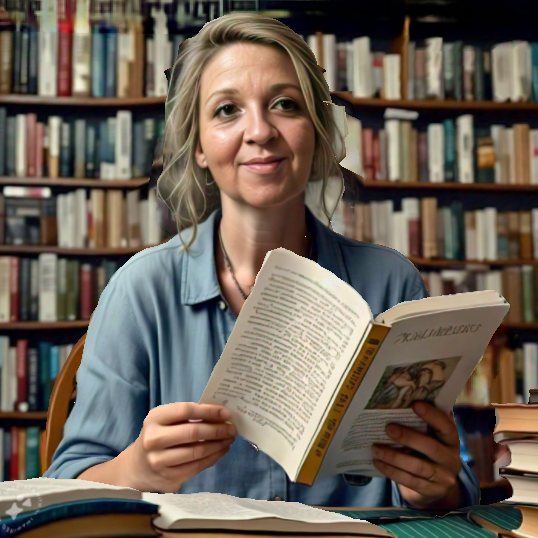Words have the power to heal, inspire, and create an unspeakable energy within ourselves. When we put pen to paper or fingers to keyboard, we unlock a reservoir of thoughts, emotions, and dreams that long to be expressed. These words want to be written. There is immense power in speaking things into existence, but when we write them down, they become even more concrete, more real. It’s as if we are carving our truths into the fabric of reality, much like Moses received the Ten Commandments, etched into stone for all eternity. Writing is an act of creation, an act of commitment. Every time we share our ideas, we inspire. Every time we smile, we send love without even knowing it. And every time we write, we leave a mark on the world—whether big or small. Our words, written or spoken, have the ability to change perspectives, move hearts, and influence lives.
Throughout history, we have placed great trust in the written word. Whether it’s the Bible, the Quran, or the Tipitaka, sacred texts have guided humanity for centuries. We’ve recorded our triumphs and tragedies, our hopes and fears, through the written word. It has been our way of preserving history, passing down wisdom, and building connections across time and space.
Yet, in today’s world, the written word seems to be losing its place. We’ve replaced long, thoughtful exchanges with “word of mouth” and, now, with brief emoji reactions. In an age dominated by quick texts and social media posts, the written word sometimes feels like an ancient script that belongs to a different era. But despite these changes, there is something timeless about writing—a power that transcends modern technology. Writing is a form of expression that allows us to connect more deeply with our thoughts and feelings. Whether it’s a journal entry, a blog post, or an entire book, the act of writing brings us closer to our authentic selves. There is something about the physical process of putting words down that slows us down and forces us to think, reflect, and process. Research even shows that reading and writing on paper can lead to deeper comprehension. The tactile experience of holding a book or writing in a journal engages our minds differently than reading on a screen. It allows the information to seep deeper into our minds, fostering higher levels of understanding and retention. Writing as a Tool for Healing
When I first began my journey of healing, I turned to writing as if it were the river of life itself. I found solace in the act of capturing my thoughts and emotions on paper. Some days, I would sit in amazement, re-reading my own words and marveling at the insight and clarity they offered. Writing became my lifeline, pulling me back from sinking too far into the depths of despair.
Writing your truth can be a liberating experience. It’s an opportunity to lay bare the emotions and stories you’ve been holding inside. It’s a way of reclaiming your narrative and discovering who you truly are. And the beauty of it is that no one else can tell your story. It is uniquely yours, and it deserves to be told. You may never know the impact your words will have on someone else. They might be exactly what someone needs to read in order to find their own truth and purpose. Letting Go of What No Longer Serves You Part of the healing process is learning to release what no longer serves you. We often carry the weight of past traumas, allowing them to define who we are. Whether it’s wounds from childhood or pain inflicted by others, these experiences can leave us feeling constricted, voiceless, and blocked from our own creativity. But you have the power to break free. You don’t need to let others dictate how you live your life or how you feel about yourself. You can release the guilt, the shame, and the emotional baggage. Scream with a defiant voice, “I am present, and I am going to love myself today!” You have the right to be heard, to express yourself fully, and to let your creativity flow freely. One of the most powerful ways to release those emotional wounds is to write them down. Get it all out on paper—the pain, the anger, the fear—and then let it go. As you write, you’ll find that the weight starts to lift, the walls begin to crumble, and the flow of creativity and healing returns. Writing allows you to make peace with the past and move forward with grace and strength. Writing isn’t just about external expression—it’s also a path to internal self-love. When we write, we allow ourselves to be vulnerable. We let go of perfection and embrace our imperfections. Writing reminds us that it’s okay to be human, to make mistakes, and to grow through our experiences. As we tune into who we are now, we stop letting the past define us. Instead, we embrace the present moment and all the possibilities it holds. We reclaim our voices, our stories, and our power. Writing helps us recognize the beauty of our journey and the strength we’ve gained along the way. The Legacy of the Written Word At its core, writing is an act of love—love for ourselves, for others, and for the world. Every time we write, we contribute to the legacy of the written word. We become part of a long tradition of storytellers, healers, and creators. And while technology may change, the essence of writing will remain the same. Words have always had the power to shape our world. They inspire revolutions, ignite passions, and heal hearts. So, keep writing. Keep telling your story. The words that need to be written are waiting for you, and the world needs to hear them.
As you move forward on your journey, remember that your words have value. They have the power to change lives, starting with your own. Write with intention. Write with love. And above all, write with the knowledge that your words matter.
Writing is more than just a way to communicate—it’s a tool for self-discovery, healing, and empowerment. Whether you’re journaling for personal growth or sharing your story with the world, the act of writing has the power to transform your life. Embrace it. Let go of the fear and doubt that holds you back. Allow your words to flow freely, and trust that they will take you where you need to go. Your words have the power to heal, inspire, and create a brighter future—for yourself and for others.













No Comment! Be the first one.